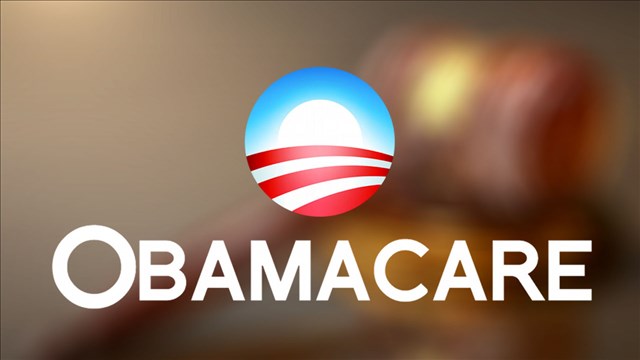
Compare plans from top companies.
Health Care Reform
On 3/23/2010 President Obama signed the health care reform bill into law. While there are still differences that need to be reconciled between the various versions of the healthcare bill here is the timeline for the health care reform changes and how Obama’s health plan (“ObamaCare”) and health care reform affects you and your health insurance:
Health Care Reform: Changes Happening in 2010
- Children age 26 and younger will be able to remain covered under their parents health insurance plans (this is increased from past age limits which were anywhere from age 22-25).
- Medicare recipients will receive a $250 rebate to help in closing the “doughnut hole” (with the goal being to close the doughnut hole completely by 2020).
- Health insurance companies will be banned from excluding coverage for pre-existing conditions for children.
- Adults with pre-existing conditions will be eligible for coverage into high risk health insurance pools until future health care exchanges are up and running.
- Health insurance companies will be prohibited from levying annual limits and lifetime limits on coverage.
- All new health insurance plans must provide coverage for preventative services with no out of pocket cost (all health plans will be forced to comply by 2018).
- Those companies that offer health benefits for early retirees ages 55 to 64 will receive assistance from a temporary reinsurance program.
- All new health insurance plans will have to comply with new regulations that lay out an appeals process for when health insurance claims are denied.
- Small businesses that employ less than 50 people are eligible for a tax credit equal to 35% of their health insurance premiums (this increases to 50% by 2014).
Health Care Reform: Changes Happening in 2011
- Medicare will offer wellness visits for free one a year and personalized prevention plans. All new Medicare plans will offer preventative services with no out of pocket cost.
- Seniors enrolled in Medicare Advantage or the Prescription Drug Plan will receive a 50% discount on brand name drugs immediately with additional prescription drug discounts to follow.
- The current penalty tax of 10% on all distributions from a Health Savings Account before the age of 65 on nonqualified medical expenses will increase to 20%.
- A small business alternative to a cafeteria plan will be presented so that small businesses can offer tax free benefits without having to deal with the administrative costs of a cafeteria plan.
- Everyone earning more than $200,000 as an individual or $250,000 for those who file married filing jointly will have their Medicare payroll tax increased from the current 1.45% to 2.35%.
Health Care Reform: Changes Happening in 2013
- A $2,500 annual cap will be placed on all contributions to flexible spending accounts (amount indexed for inflation each subsequent year).
- The current tax deduction that employers receive for subsidizing the prescription drug costs of their employees who are eligible for Medicare Part D will be done away with.
- A 2.9% excise tax on the sale of medical devices will be put into place. Certain common items like glasses, hearing aids, etc. are exempted from this tax.
- The hospital insurance tax will increase .09% for those who earn more than $200,000 ($250,000 for those married filing jointly).
- Additional requirements on health insurance companies to implement uniform standards for exchanging health care information, electronic communication, and other measures to reduce insurance company administrative costs.
- The minimum threshold for being able to claim an itemized deduction for health care expenses increased from 7.5% to 10% of AGI although those over the age of 65 can stay at the 7.5% threshold through 2016.
Health Care Reform: Changes Happening in 2014
- All US citizens will be forced to have health insurance coverage considered acceptable by the US Government or else pay a fine of $95 in 2014, $325 in 2015, $695 in 2016 (capped at 2.5% of AGI). All of the fines are per person per year except for families have a cap on the total fine of $2,250 and the fine amount for children is half of the adult fine.
- Eligibility standards are implemented for newly formed health care exchanges.
- Businesses with 50 or more employees will face a fine of either $2,000 or $3,000 per employee for not offering health insurance coverage.
- Group health insurance plans have a maximum waiting period of 90 days.
- Health insurance companies are prohibited from using an individual’s health status to issue a policy or renew a policy. All pre-existing conditions must be covered and higher health insurance rates cannot be levied because of health, gender, etc.
- The eligibility standards for Medicaid will be changed to 133% of poverty for those who are not considered elderly.
- New annual fees will be levied on all health insurance providers based on an insurance companies market share and whose total premiums exceed $25 million.
Health Care Reform: Changes Happening in 2018
- The “Cadillac” health insurance plan tax will kick in. An excise tax will be levied on all employer provided health insurance plans costing more than $27,500 for families and $10,200 for individuals (with increased limits for those considered to be in “high risk” professions).
Compare Health Insurance Quotes!
Comparing quotes from many different health insurance providers is the best way to save – get started by entering your zip code into the box on the right now!
Sources:
House Energy & Commerce Committee